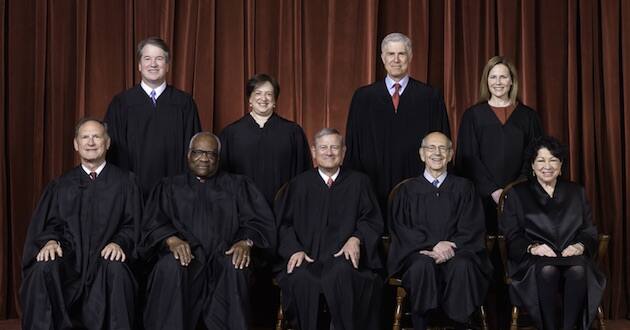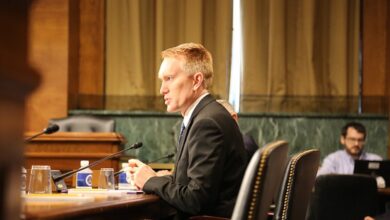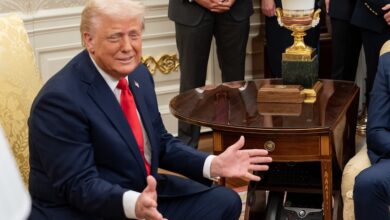Here’s the hot-button cases the Supreme Court will rule on this month

June is perhaps the busiest month for the U.S. Supreme Court as it hands down dozens of decisions in “culture war” cases.
This year those rulings on their docket include issues dealing with religious liberty, healthcare, college sports, election laws, and LGBTQ issues and a myriad of other topics. Because of the pandemic, the high court chose to meet remotely. This will be the first end of session that includes President Donald Trump’s third and final appointment to the court. Amy Coney Barrett is expected to be an originalist and conservative voice after she replaced Justice Ruth Bader Ginsburg.
The court has been out of the headlines since it ruled on just a few cases dealing with the Nov. 2020 election. For the most part, it ruled that lower courts needed to sort out oddities in how voting laws were changed at the last minute to favor Democrats, to the dismay of Republicans.
“Now they’re starting to gather momentum and the very conservative majority on the court is I think headed in the direction of an absolutely blockbuster term next year” said Paul Smith, from the Georgetown University Law Center.
This month, the court will decide 26 cases – almost one a day on average.
Much of the focus will be on Barrett who solidified a 6-3 conservative majority. She has yet to reveal where she will come down on the most controversial cases.
IMMIGRATION: One of the first cases to be decided was on immigration and upheld a view of the former Trump administration. On Tuesday, the court ruled that immigration authorities could question the testimony of those seeking asylum. Democrats had argued that such testimony must always be considered truthful with no ability to question its validity in immigration court hearings. In Garland v. Dai, the court rejected rulings from the liberal United States Court of Appeals for the Ninth Circuit, in San Francisco, that assumed immigrants’ testimony was always credible.
Here are some of the June decisions to watch:
ELECTION REFORM: Brnovich v. Arizona Democratic National Committee: Challenge to two provisions of Arizona’s voting laws, which liberal lower courts ruled discriminatory. The law remains in effect amid the legal challenges and would prohibit “ballot harvesting” — absentee ballot collection by third parties with what many claim is non-existent security. The law also requires ballots be cast at the polling precinct listed on the voter registration and not at a different precinct.
FREE SPEECH AND ASSOCIATION: Thomas More Law Center and Americans for Prosperity Foundation v. Rodriguez: Private non-profits and charitable trusts challenge California’s major donor disclosure requirements, arguing they burden a group’s “nonelectoral, expressive association rights.” The California law, which is being replicated in other states, could also force the disclosure of donations to churches and other houses of worship, religious schools and organizations. Many fear that such disclosures would be used in the so-called “cancel culture” movement to punish private citizens for their political or religious beliefs.
RELIGIOUS FREEDOM: Fulton v. Philadelphia: Whether the city can end a social services contract with a Catholic charity that refuses to screen homosexual couples as potential foster parents. The taxpayer-funded, religious-affiliated agency asserts its religious liberty rights, but the city calls it discrimination. Supporters of religous rights say that government mandates could force organizations to change their views if they work with government agencies in any form, including religious colleges whose students receive Federal Financial Aid commonly known as FAFSA.
STUDENT SPEECH: Mahanoy Area School District v. B. L.: Free speech rights of juvenile students, when expressed off-campus. Brandi Levy, a JV high school cheerleader was kicked off the team for posting insulting language and photos on Snapchat, angrily expressing her disappointment for not making the varsity team. The case looks at whether schools can controls speech off campus. It could have implications on wether employers can control speech of off-duty employees.
HEALTHCARE: California v. Texas: The future of the Affordable Care Act, known as Obamacare. This is the court’s third challenge of the controversial decade-old law that originally passed with no Republican votes. Many expect it to survive, at least in some diminished form. A coalition of states led by Texas is challenging a key provision, the so-called “individual mandate” requiring a tax penalty for Americans who chose not to purchase health insurance. Congress in 2017 eliminated any penalty and the question now is: can that provision — and the entire law itself — still stand. The court may be swayed to end the law because uninsured rates under Obamacare are now higher than before it was passed because of the high premiums.
ANTI-TRUST LAW: NCAA v. Alston: Whether the NCAA is illegally capping education-based benefits. Specifically, whether “amateurism” rules limiting the amount of education-related aid that student-athletes may receive violate federal antitrust law.
Upcoming cases the court is reviewing
The justices have already accepted review of the first major abortion case in nearly three decades, a challenge to a Mississippi law that would ban the procedure at 15 weeks. The court has previously endorsed a woman’s constitutional right to abortion before fetal viability outside the womb — about 24 weeks.
READ: The Mississippi law the Supreme Court will review
The Second Amendment will also be examined, a New York law making it extremely hard to get a concealed-carry permit to possess a handgun outside the home. The conservative majority is poised to again expand gun rights, for the first time in a decade.
The justices could also soon accept a review of an affirmative action appeal from Asian-American students over Harvard’s admission policies – basically how Harvard is favoring certain minorities over other minorities; whether women will have to register for the military draft; and whether biologically male students who identify as women can use girls school showers.






